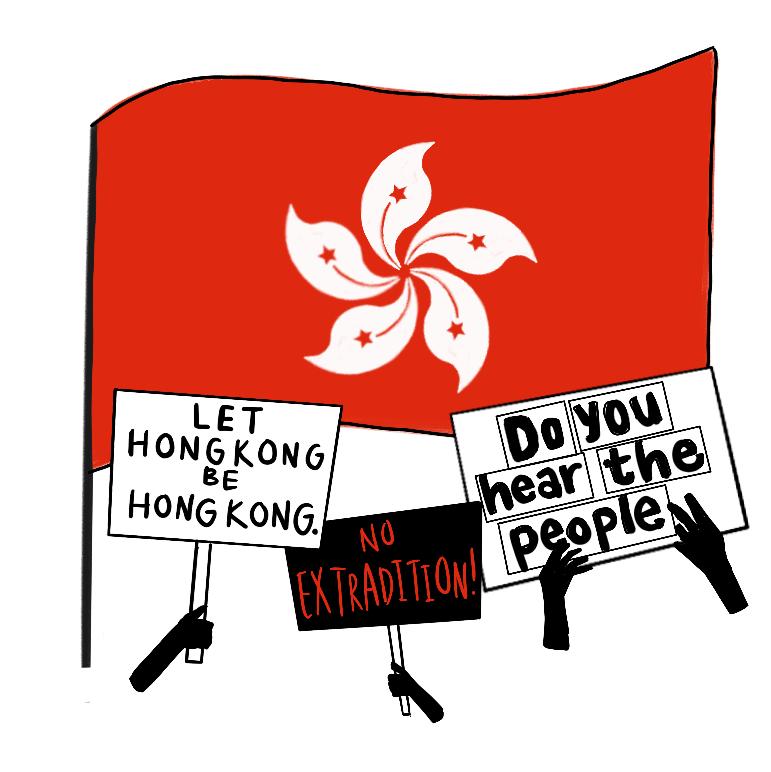
3 minute read
A Fight for Democracy
A Fight for Democracy By nomi weinberger A Fight for Democracy A s the fifth anniversary of The Umbrella Movement passes, it is important as young people to take note of both the significance of the movement and the key players involved. The Umbrella Movement was a series of protests in Hong Kong from September through December of 2014 in which people of Hong Kong took to the streets to fight for universal suffrage.
The predominantly youthled movement was triggered by the Standing Committee of the National People’s Congress announcing the implementation of a pre-screening of candidates for the election of the Chief Executive of Hong Kong on August 31st, 2014.
Advertisement
At the helm of said movement is Joshua Wong, who, at the beginning of the protests, was just 14 years old. For his work in promoting and spreading the resistance to anti-democratic policies enforced by the government of China in Hong Kong, Joshua has garnered both positive and negative attention: he suffered arrests but P&O
was also honored with global media attention including a Netflix Documentary, Teenager vs. Superpower. The aforementioned anti-democratic policies primarily revolve around the election process of the Cheif Executive: a nominating committee would elect a few candidates who would then be subject to popular election, but ultimately, the Cheif Executive could only be appointed by the Central People’s Government - the government of China.
The current bout of protests was sparked by the controversial extradition bill which essentially would
have given mainland China the ability to extradite criminal suspects. The bill has since been suspended after millions of people in Hong Kong took to the streets demanding political reform. However, the demonstrations have spiraled into a larger movement that calls for greater democratic freedoms.
In order to understand the issue, holistically, it is necessary to consider the counter-argument: Hong Kong’s unique relationship with China. Specifically, in 1997, Britain withdrew from the region and signed a deal with the Chinese government that declared Hong Kong a “Special Administrative Region of China.” In doing so, Hong Kong thereby became a part of China, but under a different system. This “one country, two systems idea”, allotted certain freedoms to Hong Kong and certain levels of autonomy from the Chinese government, until the year 2047. Therefore, many feel that China is not acting undemocratically, because, ultimately, Hong Kong is under China’s rule and China has the authority to make the decisions and act in the way that it has.
To better understand this multifaceted issue, I spoke with Mahira Kumar, a First Year at Barnard and current member of the Hong Kong Students and Scholars Society (HKSSS). She was able to not only shed light on this complex issue but also the ways in which it affects members of our community. According to Mahira, for members of HKSSS, the Chinese Students Club (CSC) and the Taiwanese American Students Association (TASA), the issue hits close to home.
Mahira says whilst she can’t necessarily speak for all members of the club, she personally subscribes to the idea of, “a nonviolent peaceful demonstration that’s pro-democracy.” In fact, Mahira actually took part in the very first peaceful protest on June 16th. However, she acknowledged the complexity of the issue and states simply that “all of us are pro a peaceful resolution, but the issue being as convoluted as it is, makes it such that there is no clear solution and no clear end in sight - it is not black and white.”
Mahira’s sentiment, regarding the delicacy, complexity, and sensitivity of the political turmoil in Hong Kong is important not just whilst considering the movement for universal suffrage in 2014, but in looking at the current political situation in Hong Kong.
We can look to Joshua to understand that power does not necessarily need to be equated with age, we can look to Mahira and other members of HKSSS to understand that the turmoil is not just a news headline, it is people’s reality. As Mahira said, “for all of us, Hong Kong is home.” And, finally, we can look to ourselves to stay informed, to be active and to fight for what is right, whatever that may mean to us.










